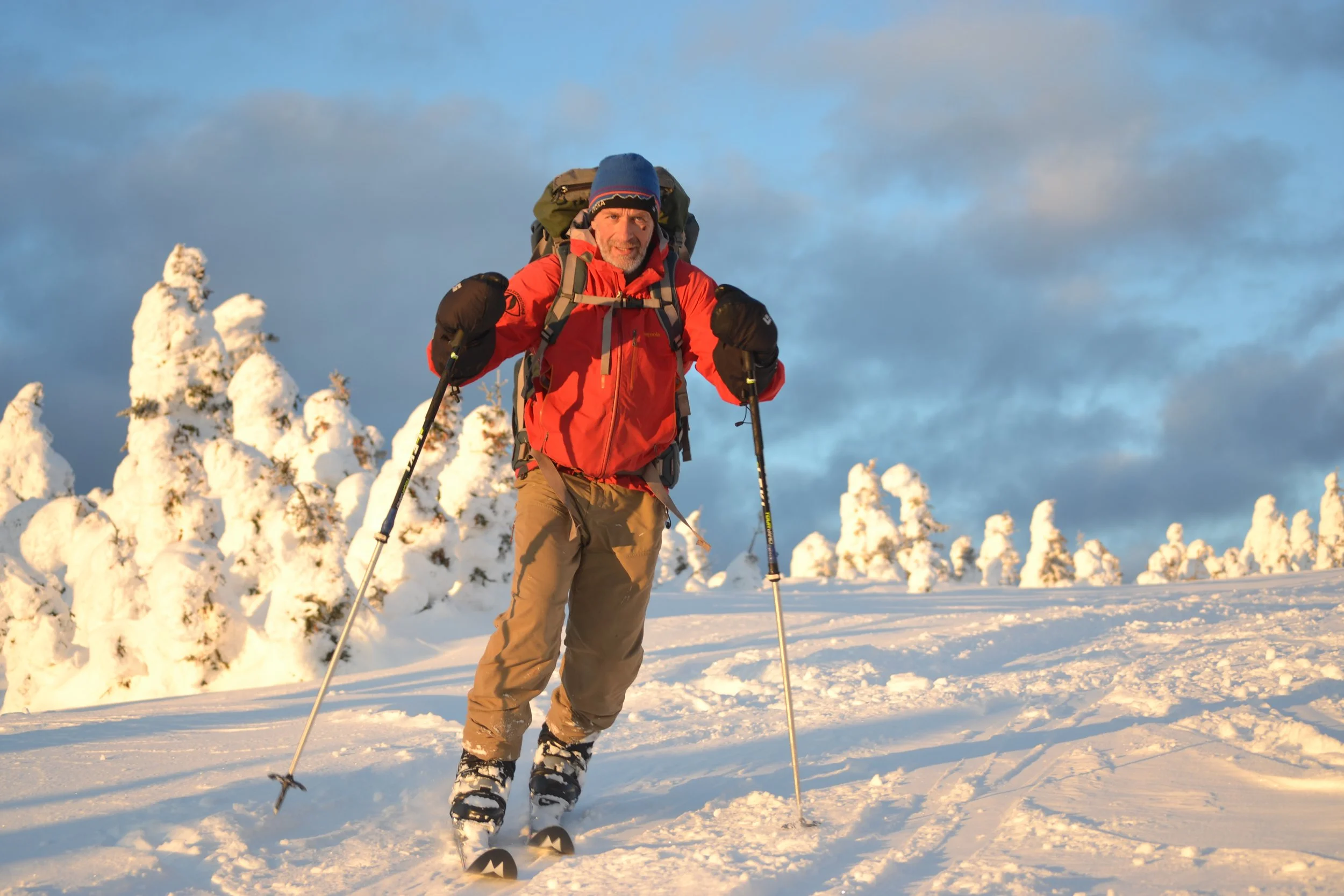lynne boudreau
misha golfman
About Your Guides
Misha Golfman and Lynne Boudreau are adventure guides with over 30 years of experience taking care of groups in remote winter environments. They will help you to be well-prepared for the trip and facilitate an inclusive community with a culture of mutual aid on the expedition.
is this trip right for me?
You need to enjoy skiing 10 - 15 kilometers a day with a 50-70-liter pack in a backcountry terrain. Trails are not groomed, and conditions are varied: sometimes we will be breaking trail through deep powder; on rare occasions, it may get icy, and some trails are narrow. Some ascents require skins in steep sections, and some descents require making turns. You don’t need to be an expert backcountry skier, but at least have a strong snowplow that you can perform consistently, with weight on your back. Covering 15 miles in the backcountry requires a lot more effort than an equal distance at a Nordic ski center. Over the past two years, this expedition was enjoyed by adults ages 30 – 70, with experience levels ranging from novice to expert. What these diverse individuals had in common was a sense of adventure, a will to practice skiing and train for the expedition, a genuine interest in other humans, and the capacity to enjoy sharing close quarters with seven strangers, who gradually become friends!
Food
We prepare simple and delicious fire-cooked meals made from scratch with whole ingredients. We eat a full breakfast and dinner, complemented by energy-supporting snacks throughout the day. We can accommodate most special dietary needs.
We value our shared meals as times to nourish our bodies and celebrate the gifts of food and companionship amongst the group.
driving notes:
We recommend snow tires while driving in Quebec. Unlike in New England, Quebec roads don’t stop during major snowstorms. A three-foot storm is not a weather emergency, but business as usual. Snow squalls, not associated with weather systems are frequent along the coast. Their snow-removal equipment and techniques are superior, and they know how to drive well during the 6.5 months of winter. In our opinion, four-wheel drive is not nearly as important as snow tires! Check the weather forecast, plan your drive accordingly, and avoid driving through snowstorms at night.
WEATHER NOTES:
Ordinarily, at the end of February, you can expect winter weather with temperatures dipping down to single digits and even below zero and rising into the upper twenties. It will most likely be snowing at least half of the time and we can potentially experience a big snowstorm while out in the backcountry. Snowstorms typically deposit between one and three feet of powder. We could experience bright winter sun or unexpected winter rain due to the changing climate. There is no avalanche danger on this trip. While the weather is likely colder than what you are used to, it is easy and fun to live and exercise in the cold, and every night we’ll have the luxury of a warm cabin where we’ll rest, dry our ski boots and clothes, and cook and eat a delicious meal to replenish our strength and stamina. We have guided groups in the cold for decades and will help you stay comfortable and avoid frostbite and hypothermia while having fun!
Backcountry emergencies:
Backcountry emergencies are rare, because of well-thought-out itineraries, careful preparation, and the many years of experience we have working with groups in remote settings. When things do go wrong, we are well-prepared to respond:
Misha is a Wilderness First Responder with decades of experience in handling backcountry emergencies. Lynne is an herbal and natural healer with decades of experience in taking care of injuries in the backcountry. We carry an extensive emergency and preventative First Aid Kit and emergency communications equipment. The National Park and Local Rescue are excellent and reliable partners in backcountry emergencies.



